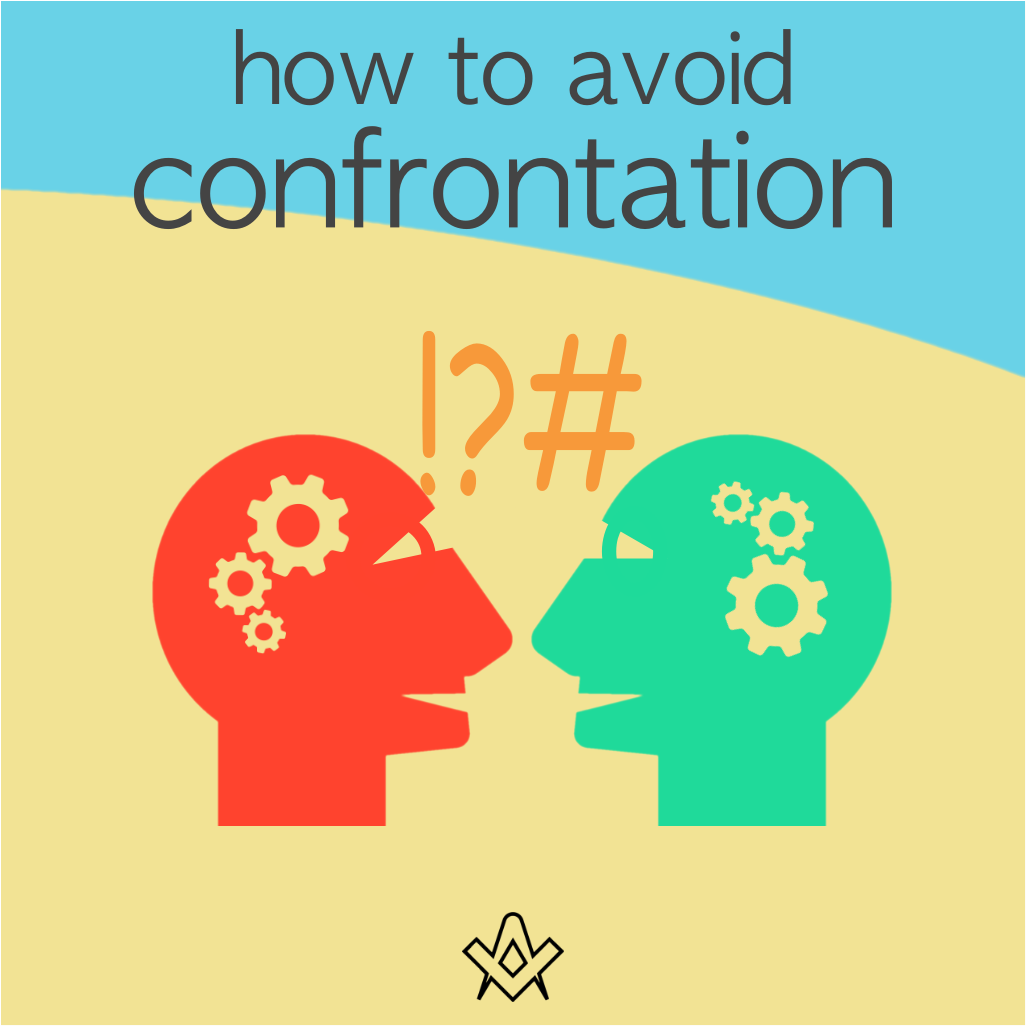How often do we find ourselves in a confrontational situation, which we feel was out of our control?
How can we use Masonic leadership skills to avoid confrontational situations?
cautiously to avoid all occasion
which might inadvertently lead you so to do
Masonic Lodges are made up of mature adults, from all walks of life, various educational backgrounds, and social upbringing; each with their own ideals and opinions.
It is that rich tapestry of membership that makes Freemasonry what it is.
We hope to be able to meet and work with that love and harmony, which should at all times characterise Freemasonry – it is a principle tenet of the Craft.
But we have to accept it will not always be the case, so we must learn how to handle the situations when we are faced with a confrontation.
In many cases, this confrontation will accelerate from zero to full on in a matter of seconds, and the fallout can last for years.
The best strategy to handle conflict is to avoid it before it happens.
To be able to identify situations which may lead to a high chance of confrontation, is the skill we can learn.
Masonic ritual provides a number of lessons to help us do this.
Audi Vide Tace
– good words for the wise Mason
Starting with the Freemasons moto: Audi Vide Tace – Listen, observe, be silent (if you would live in peace).
This is the best used by all Freemasons, seasoned and the inexperienced, when they find themselves in a new environment or in a situation where they do not know others in the group.
Use the time to assess the situation, figure out who are the alpha-males, who are submissive, who can articulate a logical conversation, and frankly who are full of BS.
by abstaining from every topic
of religious or political discussion
There are a few reasons why this condition is contained in the charge after initiation.
The Unlawful Societies Act of 1799 in England would have had an influence – to reassure King George III that Freemasons were not plotting against him to overthrow the crown.
But on a practical level both topics, religion and politics, will cause a conflict between Brothers who hold opposing views.
The best strategy is to avoid these topics of conversation, not only in the Lodge room and festive board, but in social media posts.
We see brethren, who we would have considered to be well-reasoned and experienced brothers, reposting and sharing some of the most extreme political propaganda on Facebook – that diminishes the respect we had for them.
Not because of their political views, but for their weakness, as being so easily manipulated in sharing and perpetuating these extreme posts, and their lack of understanding why we should keep our personal religious and political views personal.
It should be noted, that not all obedience’s abstain from political discussion.
Certain Liberal Grand Lodges do not impose such conditions; they have more liberal rules and views. Those rules are respected.
In some cases however, their political views and Freemasonry collide in their national Press, and does not always end well for Freemasonry, or the individual Freemasons.
The fallout is that all Freemasons get tarred with the same brush. Then we wonder why the Press takes such a negative view on Freemasonry.
subdue your passions and prejudices
A valuable lesson Freemasonry teaches us, is to learn to subdue our passions and prejudices.
On the surface, some might think this means to dampen and reduce our emotions.
The dictionary definition of ‘subdue‘, is to ‘bring under control‘, conquer, overcome.
The Common Gavel, a working tool for the Entered Apprentice Freemason, is used by operative Masons to knock off all superfluities (unnecessarily or excessively large amount or number of something), which can be applied to extreme opinions.
People who express extreme opinions, either for or against a particular view, can be viewed as someone with strong convictions, and of course they have a right to hold those convictions.
But when engaging in conversations with people who do hold extreme opinions, these conversations can often deteriorate from a healthy discussion (a discussion is to establish what is right) into a heated argument (an argument is to prove who is right) which leads to confrontation.
Freemasons who can subdue their passions and prejudices, who can moderate their extreme views, who have the mental maturity to comprehend an alternative concept, will encounter fewer confrontational situations, both inside and outside the Lodge.
Betari Box
Betari Box, though not specifically found in Masonic ritual, is nevertheless, a human behaviour device, used to help understand and subdue confrontational situations.
The foundation of the Betari Box pertains to the idea that human behaviour influences one’s own attitudes.
One person signals and interprets the behaviour of another and that forms the start of the cycle.
After all, people act based on other people’s behaviour; it influences the actions the other takes. This, in turn, influences that person again.
The Betari Box provides insight into the attitude and the behaviour regarding each other’s actions, represented in a closed cycle.
It teaches people how to gain more insight into their own actions and to improve the ambience, for instance, at the workplace, in lodge or at home.
The Betari Box helps us to understand what influences our own attitude and behaviour has on the attitude and behaviour of those around us.
Although the idea of the Betari Box is fairly simple, it’s a useful tool when contact with others isn’t smooth or when people find themselves in a negative cycle.

The best strategy to handle confrontation is to identify the possibility of it occurring, and taking the necessary steps to avoid it.
But sometimes, in a matter of seconds you find yourself caught up in the cycle, and spiralling out of control fast.
Anyone who has brought up children will have experienced this from the age of six. The adult in this situation, must take control and break the cycle.
Of course, the Betari Box cycle manifests in much more complex situations over a longer period of time.
These situations can be identified, which is a skill that can be learnt, and measures taken to break the cycle.
The use of the Betari Box is about recognising negative cycles, taking control of your own attitude, to break the cycle.
Human attitude plays a major role in the behaviour we display. It’s about action-reaction patterns.
When people are cheerful and positive, this will positively affect behaviour.
These people are kind and pleasant to others; they smile and pay compliments.
Subsequently, others will reciprocate with the same behaviour; after all, it’s hard to be unkind to someone so friendly.
who got out of the wrong side of the bed this morning ?
The reverse is also true. When a person isn’t feeling well, is moody or sad, they are less capable of obscuring this from the rest of the world.
In their behaviour, they are short with others, unkind or even unjustly angry towards the people around them.
These people, in turn, respond in the same way and will start to avoid this person or confront them. This could give rise to confrontational situations.
Human attitude shows in our external behaviours. Think of facial expressions, use of voice and intonation, or the use of certain words.
This particularly occurs in actions related to other people.
Everything we display in our own behaviours affects the attitude of others.
Before you reply to a negative response, ask yourself, do they have the mental maturity to grasp a different concept or perspective?
If not, then remain silent.
Article by: Nicholas J Broadway

Nicholas was initiated into Freemasonry in 1989 in Stonewell Lodge No. 9137, Essex England (UGLE) and was Master in 1995, 2011 and 2016. He also joined other UGLE craft Lodges and is a PZ in the Royal Arch Chapter.
He acquired the title of The Square Magazine in January 2020 and oversees the technical running of the digital publication.
Recent Articles: skill series
 Freemasonry and Reskilling in the age of AI The article explores the challenges and strategies organizations face in reskilling their workforce in the era of automation and artificial intelligence. It highlights the need for companies to view reskilling as a strategic imperative and involve leaders and managers in the process. The article also emphasizes the importance of change management, designing programs from the employee's perspective, and partnering with external entities. |
 Ten Central Commandments or Principles of Freemasonry Embrace the wisdom of Freemasonry's teachings in your personal journey towards self-improvement and stronger leadership. By upholding virtues of integrity, compassion, and respect, and uniting these with a commitment to continuous learning and social responsibility, inspire change. Transform yourself and the world around you, fostering a legacy of positivity and enlightenment. |
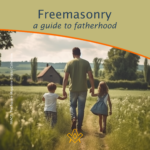 Freemasonry: A Guide to Fatherhood In the sacred halls of Freemasonry, fathers discover a hidden power to transform their parenting journey. With its timeless values, supportive community, and life-enriching teachings, Freemasonry empowers fathers to provide a moral compass, foster self-improvement, build stronger connections, and embrace the confidence and wisdom needed to navigate the complex realm of fatherhood. |
 Courage as a core value in Freemasonry Freemasonry, a revered fraternity, prioritizes virtues like honesty and charity. However, courage is foundational. From Plato to Maya Angelou, courage is vital for other virtues. Freemasonry's teachings, referencing events like Gettysburg, emphasize diverse courage forms. In today's divided world, Masons promote and exemplify courage, understanding its importance in facing challenges. |
 How Freemasonry Cultivates Ideal Entrepreneurial Traits Freemasonry's cryptic rituals hold timeless lessons for building entrepreneurial greatness. Through tests of passion, vision and skill, Masonic teachings forge ideal traits like grit, creativity and alliance-making needed to seize opportunity and elevate enterprises. The right commitment unlocks code for entrepreneurial success. |
 What you see praiseworthy in others "What you see praiseworthy in others, carefully imitate, and what in them may appear defective, you will in yourself amend". This passage of Masonic ritual (Taylors Working, Address to the w |
 How to Learn Ritual with a Learning Disorder So what do you do when faced with that little blue book? Most Masons when first looking at the ritual book can understandably be fazed – the tiny print, the missing words, the questions and answers! Learning ritual can be a challenging task for anyone, especially individuals with learning disorders, but it is not impossible. Here are some tips to help make the process easier. |
 A "mind palace", also known as a "memory palace", is a technique for memorizing and recalling information. How would your life change if you could remember anything and everything? Discover the 'Mind Palace' and all will be revealed. |
 What is leadership and who does freemasonry help develop those skills needed to be a better leader |
 A story of the 'Ruffians' – those individuals whose paths cross ours, who feel entitled to seize and consume the property of others that they have not earned. A lesson to build character to be a better citizen of the world. |
 Now we are back in the Lodge room once again, maybe it is time to review how we learn and deliver ritual and look at different ways of improving that process. |
 Making an advancement in Masonic Knowledge can become far easier when you 'learn how to learn'. |
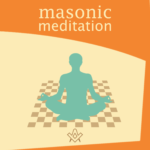 Learn how to practise Masonic meditation in a busy world with all its care and employments |
 Struggling to learn your ritual? Become a 5-Minute Ritualist with the aid of a book of the same name. |
 Day in the life of a Freemason As we start a new year, maybe start it with a new habit? |
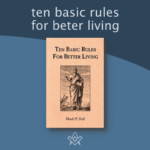 Ten Basic Rules For Better Living Ten Basic Rules For Better Living by Manly P Hall |
 How can we use masonic leadership skills to avoid confrontational situations? |
 How the Trivium is applied to Critical Thinking - {who, what, where, when} - {how} - {why} |
 The Seven Liberal Arts - why 'seven', why 'liberal', why 'arts'? |
 How to improve your public speaking skill with 6 techniques |
 Do you need to speak in public, or present Masonic ritual without notes ? |
 What are logical Fallacies and how to spot them |
 Share one easy tip to learn masonic ritual; Some good tips from Facebook followers |
 How can we use the 7 secrets of the greatest speakers in history |
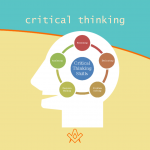 What is a critical thinker and what are their characteristics? |
 Share one personal skill Freemasonry helped you to improve? How can we make practical use of the lessons taught in Masonic writings? |
 An introduction to the art of public speaking - speak with confidence |
 Seven Liberal Arts and Sciences What do you know about Seven Liberal Arts and Sciences |
 Three Words That Will Change Your Life This article discuss a common situation found in many lodges - a difficulty in holding a conversation with a stranger. |
 Al - Khwarizmi live c750 - c820 is credited as being the father of Algebra, being asked what is Man, give his answer in an algebraic expression |
masonic knowledge
to be a better citizen of the world
share the square with two brothers

click image to open email app on mobile device



